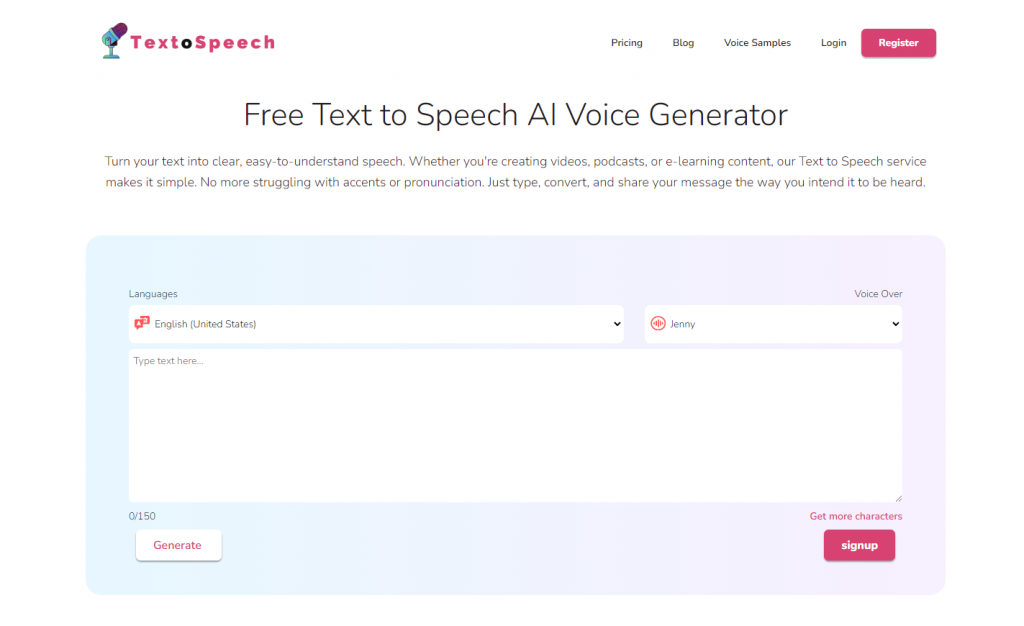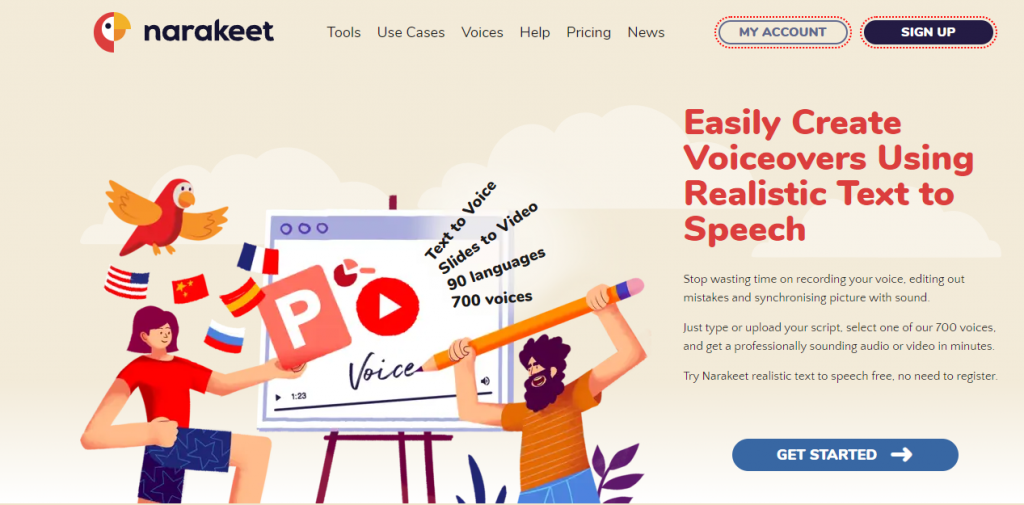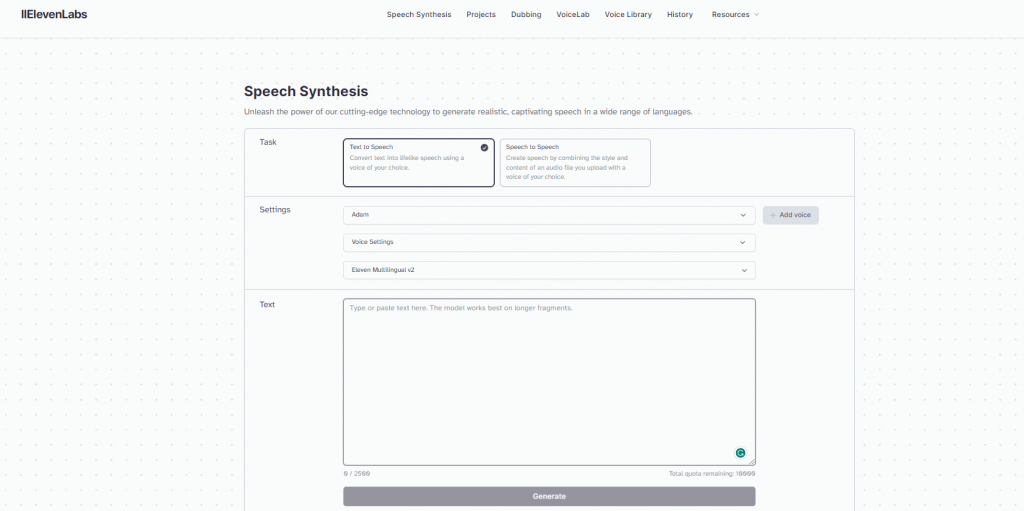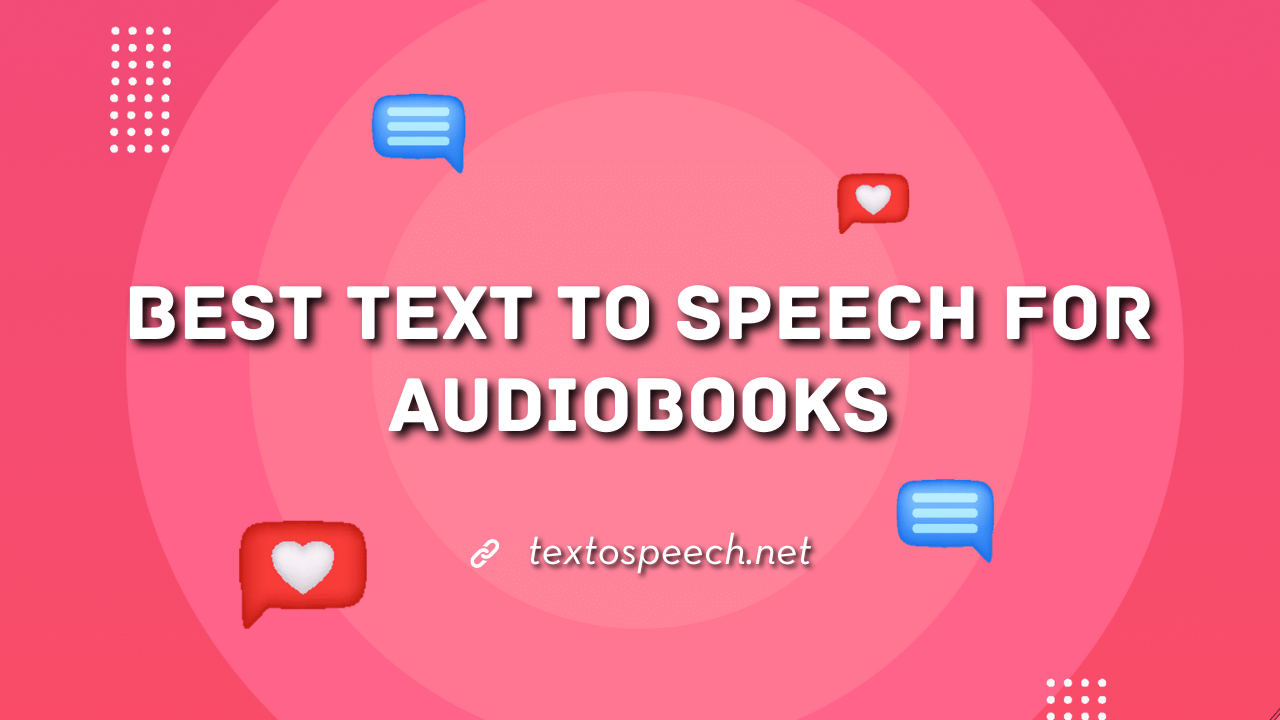Text to speech tools have revolutionized the way we access and enjoy books, especially in the form of audiobooks. These tools convert written text into spoken words, allowing you to listen to books when you can’t physically read them.
In this article, we will discuss the top 5 text to speech tools ideal for creating audiobooks. We’ll explore their key features, the quality of voices they offer, and how they enhance the overall audiobook experience.
Why Use Text to Speech for Audiobooks?
Using a text-to-speech tool for audiobooks is super smart. It’s much faster and cheaper than recording with a real person. You type the text, and the tool reads it out loud.
The best text-to-speech tools for audiobooks sound almost like real people talking. They can read in different voices and styles, making the audiobook more interesting.
This way, listeners can enjoy a good story without noticing it’s a machine reading. It’s perfect for authors or publishers who want to make audiobooks easily and affordably.
5 Best Text to Speech For Audiobooks
1. TextoSpeech

TextoSpeech is a text-to-speech tool that’s perfect for making audiobooks. It turns written text into spoken words, which is really handy for creating audio versions of books.
With TextoSpeech, you can choose from different voices to find the one that fits your book’s style. It’s super easy to use, so even if you’re new to making audiobooks, you won’t have a hard time.
What makes it great for audiobooks is how clear and lifelike the voices sound. This tool helps bring stories to life, making them enjoyable for listeners who prefer audio over reading.
Features of TextoSpeech
- Supports over 50 languages and 300 voices, providing a diverse range of content needs.
- Provides an easy-to-use text editor with real-time preview for fine-tuning voiceovers.
- Flexible pricing plans, including a free version, low-cost subscription options for advanced features, and a lifetime plan.
- Natural-sounding voices that are ideal for YouTube videos and multimedia projects.
- Web-based platform, ensuring accessibility and convenience without the need for software installation.
- Fast processing speeds allow for faster turnaround on voiceover projects, increasing productivity.
Pros and cons of TextoSpeech
Pros
- Variety of Voices and Languages
Ease of Use
Time-Saving
Cost-Effective
Consistency
Accessibility
Cons
- Limited Features in Free Version
Lack of offline functionality
2. Narakeet

Narakeet is a cool tool for turning text into speech, really useful for making audiobooks. It’s got a bunch of different voices that sound natural, so your audiobook feels like it’s read by a real person.
This is super important to keep listeners interested. What’s great about Narakeet is that it’s easy to use. You upload your book text, pick a voice, and it does the rest.
It’s perfect for authors or publishers who want to make their books available in audio format without the hassle of finding a narrator or recording studio. Narakeet makes creating audiobooks simple and fun.
Features
- Offers over 700 voices across 90 languages, catering to a global audience and diverse content needs.
- Includes background music options, sound effects, and the ability to adjust speech speed and pitch for customized voiceovers.
- Easy-to-use script editor and the ability to convert PowerPoint presentations directly into narrated videos.
- Flexible pricing plans, including pay-as-you-go and subscription options, are suitable for various user needs and budgets.
- High-quality, natural-sounding voices enhance the overall audio experience of your content.
- Easily integrates with various content creation workflows, streamlining the process of adding voiceovers to videos and presentations.
- Wide accessibility with support for multiple languages and dialects, making it ideal for creating content for international audiences.
Pros and cons
Pros
- Narration
- Multilingual Support
- Automated Video Creation
- Customization Options
- Cloud-Based
Cons
- Limited Human Touch
- Learning Curve
- Cost
3. ElevenLabs

ElevenLabs is a top choice for turning text into speech, especially for audiobooks. It uses advanced tech to make the voice sound really natural and human-like. With ElevenLabs, you can pick from different voices to match the mood of your book.
Whether it’s a mystery novel or a kids’ story, you can find the perfect voice. It’s easy to use, too, so you can make your audiobook sound great without needing a lot of tech skills.
Features
- Generates high-quality audio from text using AI algorithms.
- Offers pre-designed voice profiles and the ability to create new voices from audio snippets
- For long-form content creation, such as audiobooks, with contextually-aware voices.
- Translates and preserves original voice characteristics in over 20 languages.
- Utilized by publishers and authors for AI-narrated content.
- Sets rules against misuse, supporting artistic and political speech
Pros and cons
Pros
- Human-Sounding Voices
- Versatile and Realistic AI Speech
- Voice Lab Feature
- High-Quality Audio
- Voice Library
- Intuitive Interface
Cons
- Control over the final aspects
- Huge number of features
- High Learning Curve
4. Speechify
Speechify is a cool text-to-speech app that’s great for turning written stuff into spoken words. It’s perfect for audiobooks. You can take any book or document and Speechify will read it out loud.
What’s neat is you can choose different voices and even adjust the reading speed. So, if you have a bunch of books or articles you want to listen to, Speechify makes it easy.
It’s super useful for anyone who loves books but might not have the time to read them all. With Speechify, you can listen to your books anytime, anywhere.
Features
- Speechify offers over 30 languages and a wide range of 130+ voices, including natural-sounding and celebrity-like options.
- Includes reading speed control, highlighting text as it’s read, and converting text from books, PDFs, and web pages.
- Integrates with browsers and mobile devices, allowing seamless text-to-speech conversion across different platforms.
- Offers a free version with basic features and a premium plan with advanced capabilities like more voices and offline listening.
- High-quality voice synthesis, providing clear and natural-sounding audio for various content types.
- User-friendly interface, making it easy for users of all skill levels to navigate and use the tool effectively.
- Multi-device compatibility, supporting usage across computers, smartphones, and tablets for consistent accessibility.
Pros and cons
Pros
- Accessibility
- Language Learning
- Productivity
- OCR technology
- Support for Multiple Platforms
Cons
- Naturalness of Voice
- Accuracy and Pronunciation
- Subscription Costs
- Limited Context Understanding
5. Lovo

Lovo is a text-to-speech tool that’s awesome for making audiobooks. It’s special because it makes the audiobook voice sound natural like a real person is reading the story.
This is perfect for audiobook creators who want their listeners to enjoy a great reading experience. What’s cool about Lovo is that it has lots of different voices to choose from.
So, you can pick the perfect voice that fits your audiobook’s style and character. Whether it’s a mystery novel or a fun children’s book, Lovo helps bring the story to life with voices that sound just right.
Features
- Advanced natural language processing for expressive, human-like voices
- Over 400 human-like voices in 140+ languages and 25+ emotions.
- AI voices are capable of a wide range of emotions for engaging content.
- AI voices are capable of a wide range of emotions for engaging content.
- More than 400 realistic voices with control over sound effects and emotions.
- Easy integration of LOVO’s AI voices into various applications and services.
- Accurate and instant voice cloning from a 10-second audio sample.
Pros and cons
Pros
- Diverse Voice Options
- Customization
- Easy to Use
- High-Quality Audio
- Time-Saving
Cons
- Limited Emotional Range
- Limited Customization in Free Version
- AI Limitations
- Cost
FAQs
What is the best text-to-speech software for audiobooks?
Top choices include Amazon Polly, Google Text-to-Speech, and IBM Watson Text to Speech, known for natural-sounding voices and flexibility.
Is text-to-speech technology affordable for creating audiobooks?
Yes, many services offer scalable pricing models, making them accessible for individual creators and small publishers.
What file formats do text-to-speech tools export for audiobooks?
Common formats include MP3 and WAV, which are compatible with most audiobook platforms.
Can text-to-speech technology create different character voices in audiobooks?
Sophisticated text-to-speech engines can generate varied voices, aiding in character distinction and storytelling.
Final Words
When it comes to making audiobooks, these top 5 text-to-speech tools are the way to go. They turn written words into clear, engaging audio, perfect for audiobook lovers.
Each one has its own cool features, making audiobook creation easier and more fun. And don’t forget TextoSpeech, known for its clear voices, adding another great option for your audiobook projects.

